Search Results for Tag: Climate
Polar regions hit by ocean acidification
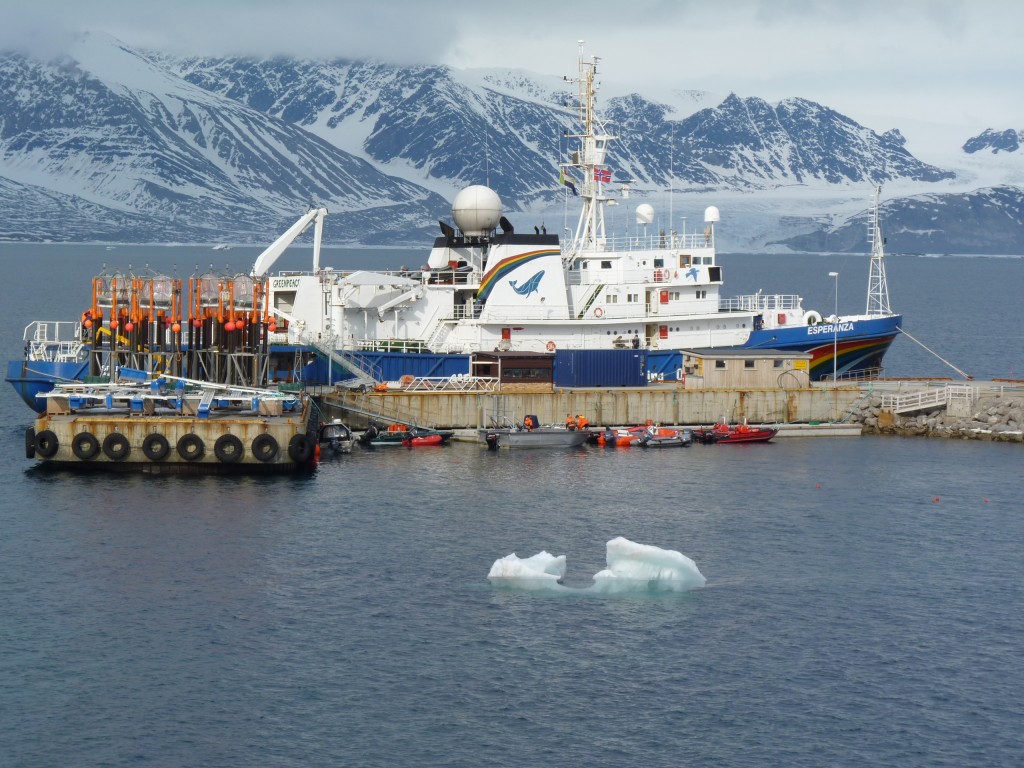
In 2010 I watched the start of the first in situ ocean acidification experiments off the coast at Ny Alesund, Spitsbergen, as part of the EU’s EPOCA project. Mesocosms, or giant test-tubes, were being taken out to sea by the Greenpeace ship the Esperanza. (Pic: Irene Quaile)
Did you notice much about the problem of CO2 in the oceans in the (already minimal in most places) coverage of the Warsaw climate conference? A summary of the report published recently by the International Programme on the State of the Oceans (IPSO) was presented at the meeting to draw attention to the dangers posed by acidification for ecosystems, humankind and, in form of a feedback effect, for the climate warming which is causing it in the first place. If that sounds complicated, but intriguing enough to warrant further interest, you might want to listen to an interview I recorded this week with Alex Rogers. He is a Professor of Conservation Biology at the Dept. of Zoology and a Fellow of Somerville College, University of Oxford. Amongst his many other titles, he’s the Scientific Director of IPSO. He told me it was a “fascinating coincidence” that the report was published just after the latest IPCC report, which noted, amongst other things, that atmospheric temperatures hadn’t risen as much over the last ten years or so as had been expected. One main reason suggested is that the excess heat is being taken up by the ocean, especially the deep ocean. And that fits perfectly with the findings of the big ocean survey and collation of data, says Prof. Rogers.
I also talked to Ulf Riebesell from the Helmholtz Institute for Ocean Research in Kiel, Germany, a lead author of the report and the scientist who has been in charge of the in situ acidification experiments in the Arctic .You might also enjoy in my report from that venture.
That interview is in German, so I’m not putting it up here, but the content will be flowing into an article for the DW website very soon. Meanwhile, here’s Professor Rogers:
Why conferences like Warsaw won’t save the Arctic!
No wonder the ngos walked out in disgust. The latest UN climate conference has strengthened my feeling that these mega-events are not going to lead to the emissions reductions we need to protect the polar ice and the world climate.
Typhoon Haiyan and its devasting effects on the Philippines was a fine warning of what the world could be facing if we are not able to put the brakes on climate change. The newest IPCC report provides impressive evidence of the need for swift and effective action to combat climate change. Otherwise, the world will have to cope with more frequent and severe extreme weather events, rising seas, floods and droughts. The World Bank and the UN have set the alarm bells ringing. We have to reduce emissions by around 85% by 2050 to keep global temperature rise to the two-degree Celsius limit. The International Energy Agency says that would mean leaving 80% of our remaining fossil fuels in the ground.
Climate sinners hosting
Unfortunately the track laid out for the conference in Poland was heading in another direction from the start. Fossil energy providers and huge energy consumers like the steel and car industry were sponsoring the event. The host country Poland is and plans to remain a coal country. So far, Warsaw has blocked more ambitious emissions targets in the EU. The fact that a coal summit was held in Poland during the climate negotiations was clearly demonstrative – and verges on the cynical. The sacking of the Polish environment minister who was chairing the talks shows a lack of respect for the meeting and the issue of climate change itself.
Climate politics: no leadership in sight
But the failure of the conference was not just Poland’s fault. CO2 emissions are continuing to rise globally, and the conference delegates did not have much in their luggage to do anything about it. It was far too little in the way of commitment to binding emissions reductions or to creating an effective and well-funded compensation mechanism for developing countries. The poorest countries, which are already struggling to cope with unpredictable climate patterns, droughts and flooding, went home disappointed and frustrated – once again.
The EU was unable to agree on tighter emissions targets ahead of the conference. Germany, long considered a leader in the field, is currently putting the brakes on its own renewable energy revolution by shifting financial incentives. Japan, Canada and Australia, all took a step backwards. And in spite of some progress at home, the major emitters China and the USA were unlikely to make any substantial announcements.
No progress on a new climate agreement
The Warsaw conference was supposed to come up with an effective timetable to lead to a new international climate agreement, scheduled to be set up in 2015 and implemented in 2020. Instead, it seems countries are playing for time and putting off any binding commitments. The vague document agreed at the very last minute contains no firm deadline for emissions pledges – which will not be binding anyway. The window of opportunity is rapidly closing. Decades of negotiations have produced little in the way of results. Every year without a decrease in greenhouse gas emissions reduces the prospect of keeping to the “two degree” target. Existing pledges fall way short of what is required. The “business as usual” trajectory is heading for a temperature rise of at least four degrees Celsius.
Once more, the UN climate conference has shown its inability to protect the world from the dangers of rapidly progressing climate change. Aside from the annual mega-meetings, which are in danger of disintegrating into mere token events, there are still signs of hope. China, for instance, is making considerable progress on energy issues, although the country refuses to accept internationally binding targets. Climate protection has to become part of daily politics and business in industrialised and emerging countries. Politicians must be prepared to abandon short-term advantages in favour of a long-term perspective, which would guarantee the future for coming generations through a sustainable low-carbon economy. The means turning away from oil and coal, developing renewable energies, ensuring a high price for carbon and providing adequate finance to protect developing nations from climate change caused by past emissions of the industrialised world.
Lanterns out for Arctic protesters
I have just come back from Bonn, where Greenpeace supporters joined in their own version of the traditional lantern processions which take place here at this time. Children and parents carry home made lanterns to mark St.Martin’s day, in memory of the saint who cut his cloak in half to give warmth to a beggar. In the Greenpeace marches held across Germany today, the marchers were swinging their lanterns in an appeal for the release of the Arctic 30, the crew of the Arctic Sunrise still under arrest in Russia. The procession in Bonn was heading for the Russian consulate here. It was a well timed event, marking two months of imprisonment for the peaceful protesters and the UN climate conference in Warsaw at the halfway mark.
Philippines, Warsaw, Arctic – join the dots
I have very mixed feelings as the UN climate conference gets underway in Warsaw just as the Philippines are devastated by what seems to have been the worst storm ever. The experts tell us climate change is extremely likely to be increasing the severity of extreme weather events. It is not hard to see the possibility of a link. And where does the Arctic come in? Well, the only Arctic headlines at the moment would seem to be the ongoing saga of the Greenpeace activists still under arrest in Russia after the protest at the Prirazlomnaya Arctic oil rig. Connection clear?
Amongst the mixed bag of emotions I am currently shuffling are horror at the extent of the storm devastation in the Philippines, intense sympathy with the victims, helplessness in the face of the huge force of typhoon Haiyan. Then comes deep frustration, verging on anger at the failure of the world’s big emitters so far to take action to reduce emissions and avert what the world’s scientists and the UN tell us will be catastrophic climate change, if we don’t keep to the two degree target. Add to this my complete failure to understand the continuing rush to get oil from the Arctic – regardless of the fact that this would, in turn, contribute further to the vicious circle of climate change.
Some 13% of the world’s remaining undiscovered oil reserves, 30% of its gas are estimated to be in the Arctic. The higher the price of energy, the faster the ice melts, the greater the international interest in a region becoming increasingly accessible as the world continues to warm. At the same time concern is growing amongst those who see development as a threat to the sensitive environment of the High North and the lifestyles of indigenous peoples there – and an increasing risk for the global climate: the burning of more fossil fuels would further intensify global change by producing more CO2 emissions. According to the World Energy Outlook 2012, two thirds of our known fossil fuel reserves would have to remain in the earth, if the goal of limiting temperature rise to two degrees Celsius and averting catastrophic climate change is to be reached.
The harsh nature of Russia’s reaction to the Greenpeace protest at the Prirazlomnaya oil rig in the Arctic demonstrates how important the region has become for the government in Moscow. While Greenpeace has stepped up its campaign to stop oil drilling in the Arctic and have the activists and ship released, the business of Arctic exploration and development just “carries on regardless”. Rosneft, Statoil, Italy’s ENI, Exxon Mobil, Shell… are all active in the Arctic. China and India are also keen. The UK recently unveiled plans to become a hub for Arctic oil exploration. Meanwhile, Greenpeace, is campaigning for the area around the North Pole to be declared a sanctuary and protected from drilling or other industrial exploitation. In addition to environmental campaign groups, the “Fossil Free Campaign” initiated by US American Bill Mc Kibben is gaining influence, trying to persuade companies and institutions to withdraw investments from fossil fuel-related enterprises. Perhaps that will be the way to bring about a change of heart?
Returning to the UN climate talks in Warsaw, my mixed bag of emotions unfortunately does not contain a lot of optimism at the moment. Maybe just a sliver of hope that all is not yet lost. But looking at host country Poland’s record as a coal country and recent statements by its political leaders insisting this would remain so, and bearing in mind that the country has consistently blocked the EU from adopting stricter climate goals (which, admittedly, appears to suit many other member states), it is hard to imagine this conference bringing much in the way of progress. While top emitter China is paying more attention to its environment and climate policies, the country’s rejection of international binding targets makes considerable progress unlikely.
It would be wrong to use the typhoon disaster in the Philippines just to attract more attention to the climate conference in Poland. Clearly getting international aid out to the region has to have top priority. But there is surely a moral imperative to act upon the warnings of our scientists that business as usual is extremely likely to increase the severity of storm and flood events, which hurt the needy worst of all? And would that not have to include the realization that burning fossil fuels is helping to melt the Arctic twice as fast as the rest of the planet – with negative effects not only on the people and ecosystems in the region, but – through feedback effects, sea level rise, increasing ocean acidity etc – on the regulation of the world climate? And thus, that investing in renewable energies and the transition to a green economy makes more sense than Arctic oil exploration?
Melting permafrost eroding Siberian coasts
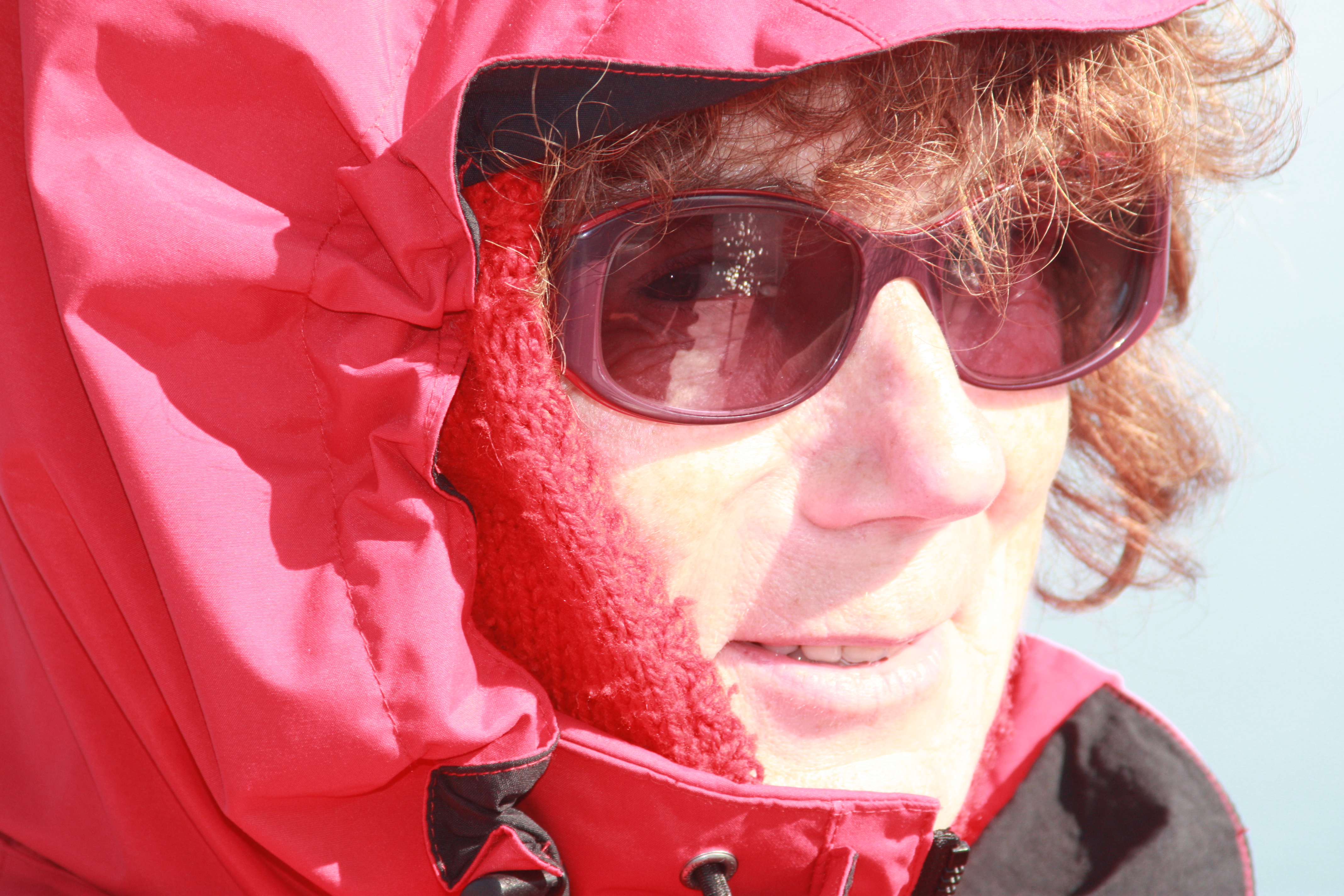 Rising summer temperatures and dwindling Arctic sea ice are eroding the cliffs of Eastern Siberia at an increasing pace. Scientists from AWI, the German Alfred Wegener Institute and the Helmholtz Centre for Polar and Marine Research have been evaluating data and aerial photographs of the coastal regions from the last 40 years. As the sea ice recedes more and more from year to year, the cliffs are being undermined by waves. At the same time, the land surface is beginning to sink.
Rising summer temperatures and dwindling Arctic sea ice are eroding the cliffs of Eastern Siberia at an increasing pace. Scientists from AWI, the German Alfred Wegener Institute and the Helmholtz Centre for Polar and Marine Research have been evaluating data and aerial photographs of the coastal regions from the last 40 years. As the sea ice recedes more and more from year to year, the cliffs are being undermined by waves. At the same time, the land surface is beginning to sink.

This graphic, courtesy of AWI, shows the interaction between permafrost melt, wave action and coastal erosion
Disappearing island
The research documents warming summers. While the temperatures during the period looked at were higher than zero degrees Celsius on an average of 110 days per year, the scientists counted a total of 127 days in the years 2010 and 2011. In 2012, the number of days with temperatures above freezing increased to 134.The number of summer days on which the sea ice in the southern Laptew Sea vanishes completely is also on the increase. “During the past two decades, there were, on average, fewer than 80 ice-free days in this region per year. During the past three years, however, we counted 96 ice-free days on average. Thus, the waves can nibble at the permafrost coasts for approximately two more weeks each year,“ says AWI permafrost researcher Paul Overduin.
Not only a problem in Siberia
Sea ice plays an important role in protecting coasts from waves. When this barrier is not there, the waves dig deep and erode land away. I saw the results of this first-hand during a trip to Barrow, Alaska, in 2008. I visited sites at Point Barrow, the northernmost point of the United States, where villages had been washed into the sea. On a trip to Greenland in 2009, I was amazed to see buildings being artificially cooled to avoid them sinking into the ground as warming temperatures melt the permafrost.
In the area of Siberia investigated by the German scientists, high cliffs protect the coastline. As the permafrost melts above and waves cut in from below, the cliffs are undermined and break off.
The erosion does not only have an impact on land. It also washes material into the sea, changing the quality of the water. Depending on the kind of erosion and the particular structure of the coast, between 88 and 800 tons of plant-, animal, and microorganism-based carbon are currently washed into the sea per year and kilometer of coastline – materials which were previously sealed in the permafrost, according to the AWI researchers. Once in the water, carbon may turn into carbon dioxide and, as a result, contribute to the acidification of the oceans.
The studies were conducted as part of the PROGRESS project which is funded by the German Federal Ministry of Education and Research. PROGRESS is the acronym for Potsdamer Forschungs- und Technologieverbund für Naturgefahren, Klimawandel und Nachhaltigkeit (Potsdam Research Cluster for Georisk Analysis, Environmental Change and Sustainability).



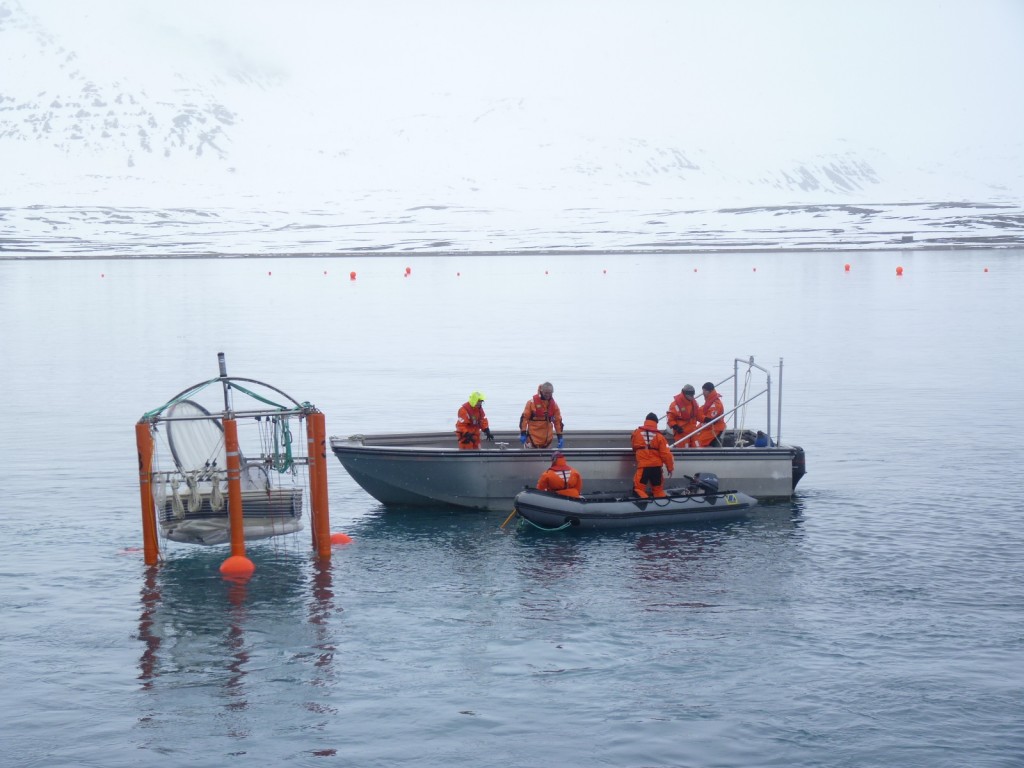

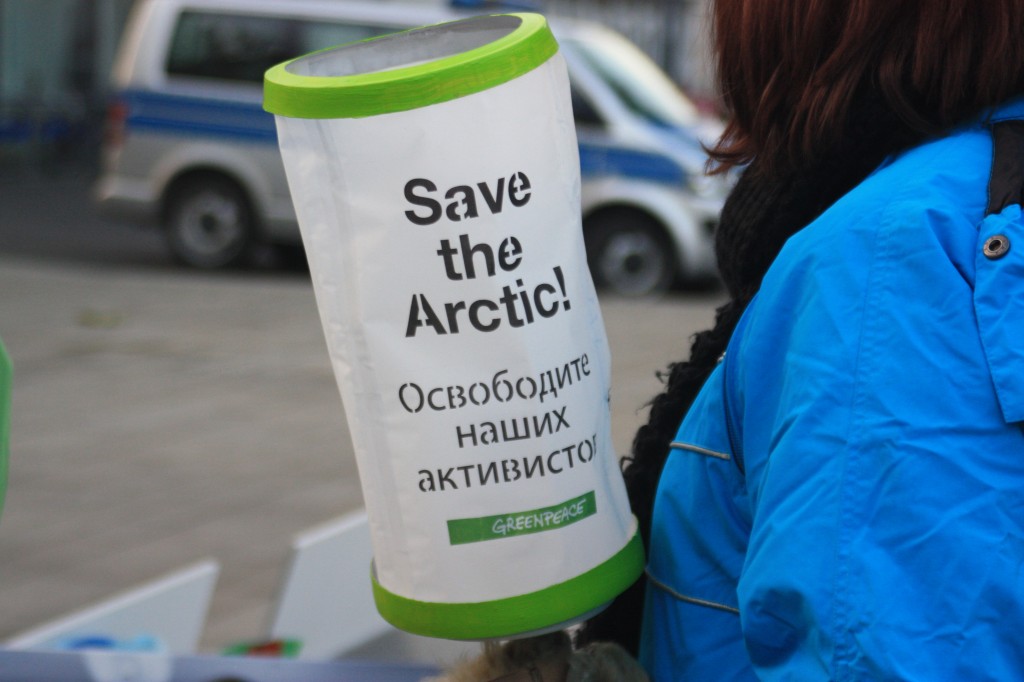
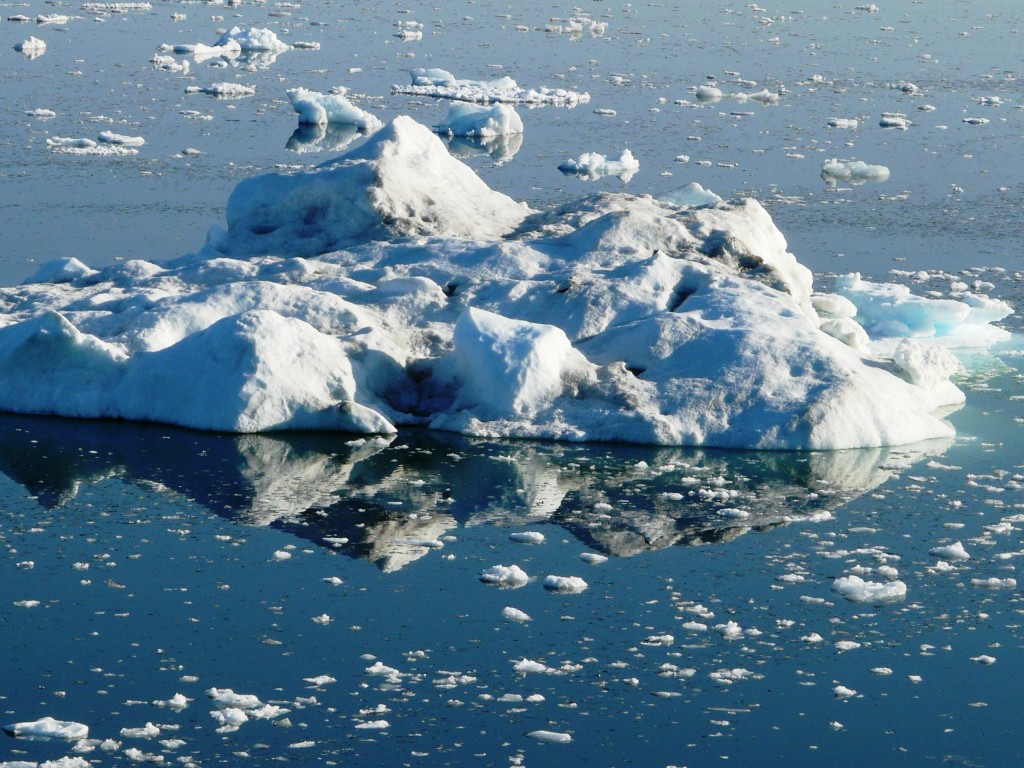

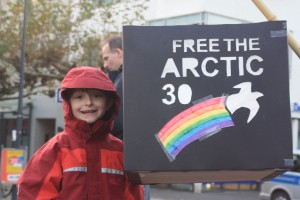


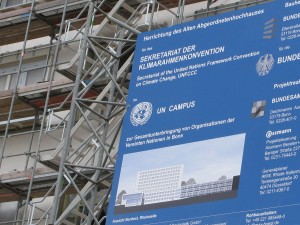
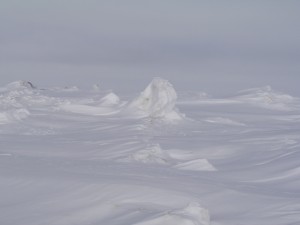
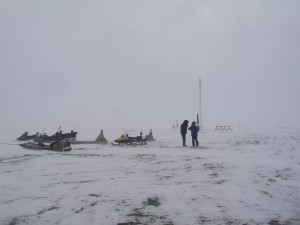
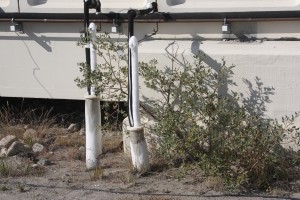
















Feedback